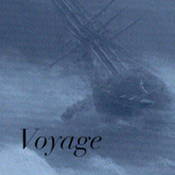
Alexander Bakunin has made an idyllic life in the Russian countryside. His four beautiful daughters are on their way to successful marriages, and his son, Michael, has joined the prestigious Russian cavalry. But, when Michael returns home from St. Petersburg with a newfound interest in philosophy, it signals an abrupt turn in the fortunes of the Bakunin family: Michael’s over-attachment to his sisters, his radical ideas, and his group of socialist revolutionary friends infiltrate Alexander’s home, and the family begins to unravel.
Stoppard’s sprawling family drama jumps back and forth through time and place, giving audiences snapshots of the day-to-day struggles of the Bakunin family, while only alluding to the devastating highs and lows. The first act of Voyage focuses primarily on the experiences of the Bakunin sisters, while the second act moves the narrative to the Moscow revolutionaries, with Michael as the conduit between the two worlds. Both acts span the same 11-year period, between 1833 and 1844.
Voyage is the first of Stoppard’s Coast of Utopia trilogy (Voyage, Shipwreck and Salvage), which all take place in pre-revolution Russia. With a total run-time of over nine hours and seventy characters, the Coast of Utopia trilogy is a daunting theatrical cycle, and has been performed to great acclaim throughout the USA and Russia. In 2007, the play and its performers won a total of seven Tony awards.
The Coast of Utopia: Voyage guide sections